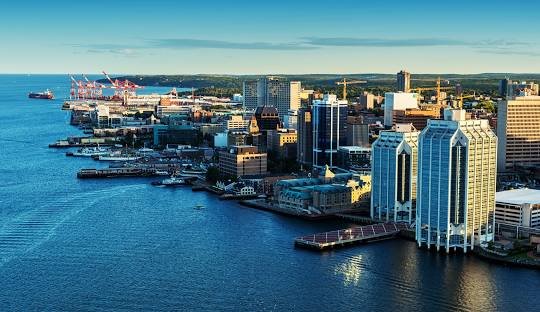Halifax City is the capital of Nova Scotia and the largest municipality in Atlantic Canada. Known for its rich history, vibrant culture, and strategic location, Halifax serves as a major hub for government, commerce, education, and transportation in the region. The city’s unique coastal setting and natural harbor have shaped much of its development and continue to influence its economy and lifestyle.
Founded in 1749 as a British military and naval base, Halifax City has played an important role throughout Canadian history. It was a key site during the American Revolution and the War of 1812, and its significance grew during both World Wars due to its ice-free harbor and naval facilities. One of the city’s most tragic moments came in 1917 with the Halifax Explosion, when a collision between two ships carrying explosives caused one of the largest non-nuclear explosions in history, devastating much of the city and deeply affecting the community.
Today, Halifax City is governed by the Halifax Regional Municipality Council, which oversees municipal services, city planning, housing, and transportation. The mayor leads the council, representing the entire municipality and working with elected councillors from various districts. This governance structure aims to manage a large and diverse area that includes urban centers, suburban neighborhoods, and rural communities. However, as the city grows, there are ongoing discussions about improving the speed and effectiveness of decision-making to better meet residents’ needs.
The economy of Halifax City is diverse and robust, anchored by government services, military presence, shipping, finance, education, and healthcare. The Port of Halifax is a crucial asset, recognized as one of the world’s deepest and largest ice-free natural harbors. It handles container shipments, cruise ships, and naval operations, making it a key economic driver not only for the city but also for Atlantic Canada. The city also benefits from several universities such as Dalhousie University and Saint Mary’s University. These institutions contribute to the local economy through education, research, and attracting students from across Canada and around the world.
Halifax City is home to a growing and diverse population. The municipality has welcomed newcomers from various backgrounds, including Indigenous peoples, immigrants, and students, making the city a culturally rich and dynamic place to live. This diversity is reflected in the city’s festivals, arts, and cultural institutions, which celebrate Halifax’s maritime heritage and contemporary creativity. Popular attractions such as the Halifax Citadel National Historic Site and the Maritime Museum of the Atlantic draw visitors interested in the city’s history, while the waterfront boardwalk offers residents and tourists a lively place to gather.
Transportation is an important part of daily life in Halifax City. Public transit is managed by Halifax Transit, offering bus and ferry services that connect neighborhoods and key areas. Major highways and roads link the city to other parts of Nova Scotia, facilitating commerce and travel. The Halifax Stanfield International Airport provides domestic and international flights, further connecting the city to national and global destinations. Despite these transportation options, the city faces challenges with traffic congestion, particularly as it continues to grow.
Housing affordability and infrastructure development are among the pressing issues confronting Halifax City today. With rising demand for homes, many residents find it difficult to secure affordable and adequate housing. At the same time, the city is working to improve roads, public transit, and other infrastructure to keep pace with population growth and economic activity. These challenges have sparked discussions about governance reforms, including proposals to grant the mayor stronger powers to expedite decision-making and reduce bureaucratic delays. Supporters believe this could speed up projects related to housing, traffic management, and budget control, while critics caution about maintaining transparency and ensuring all elected officials have a voice.
Halifax City experiences a humid continental climate, influenced by its Atlantic coastal location. Winters can be cold with snow, while summers tend to be mild and comfortable. The proximity to the ocean often brings fog and variable weather patterns, which are characteristic of the city’s climate and add to its maritime atmosphere.
As Halifax City continues to evolve, it remains a vital center of culture, economy, and governance in Atlantic Canada. Its deep historical roots, diverse population, and strategic location contribute to its ongoing growth and challenges. The city’s leadership and residents are actively engaged in shaping Halifax’s future, seeking solutions that balance development with quality of life, all while honoring the city’s rich heritage and coastal identity.







